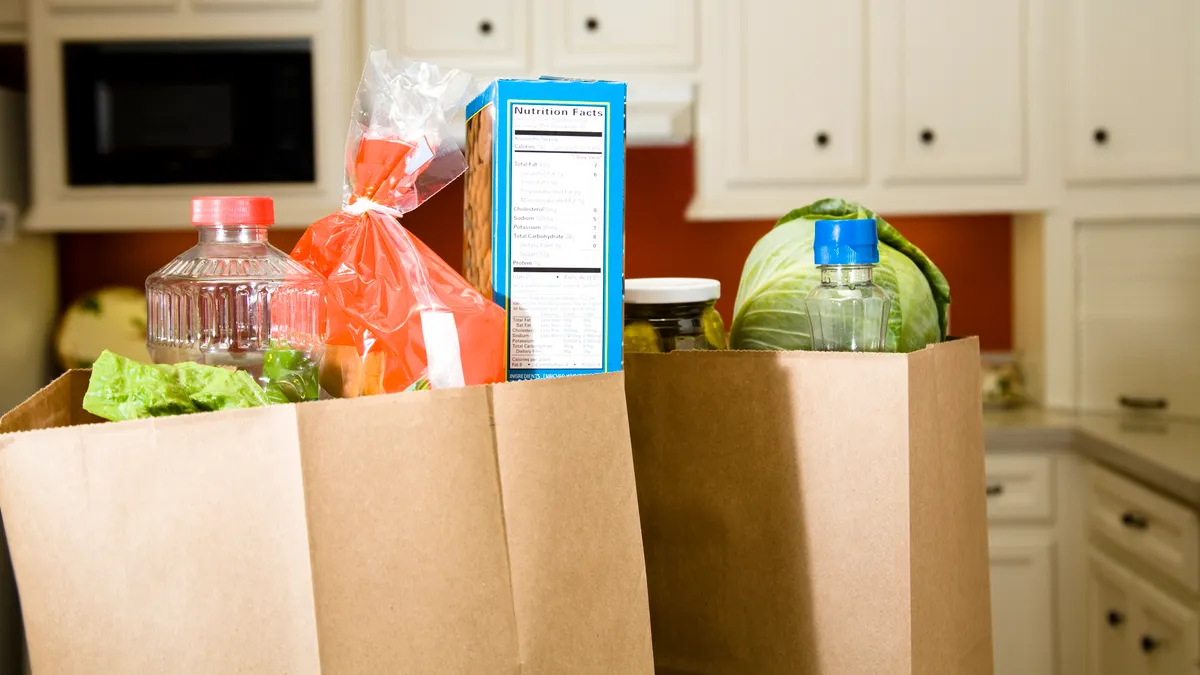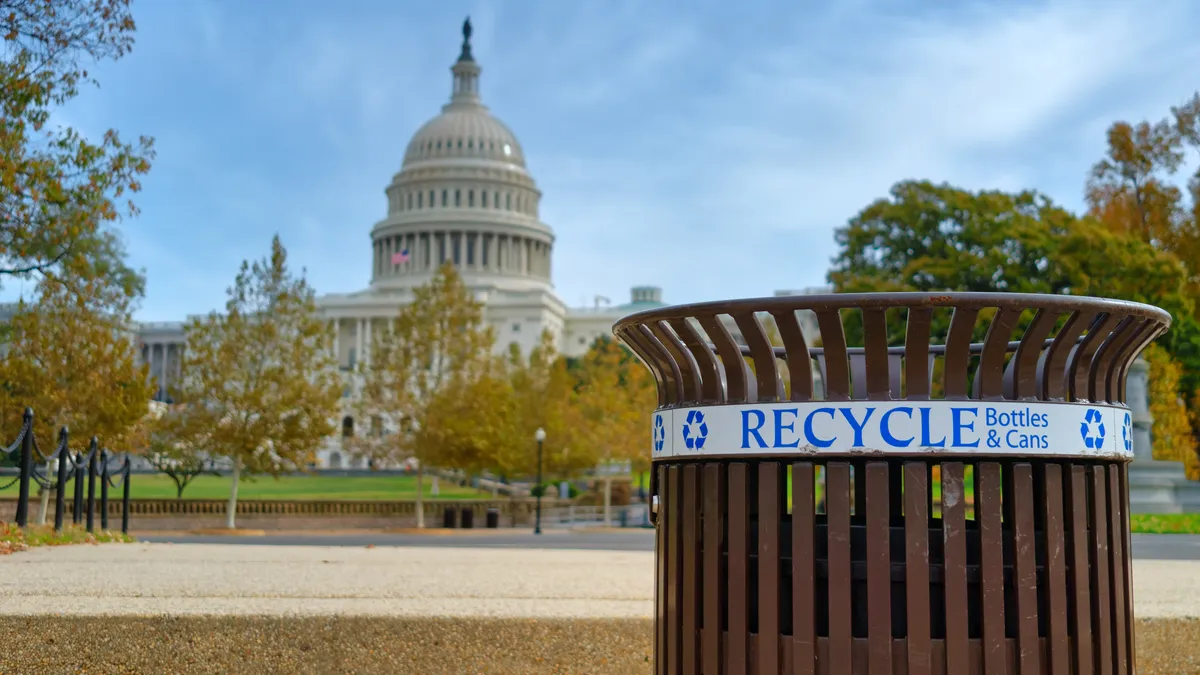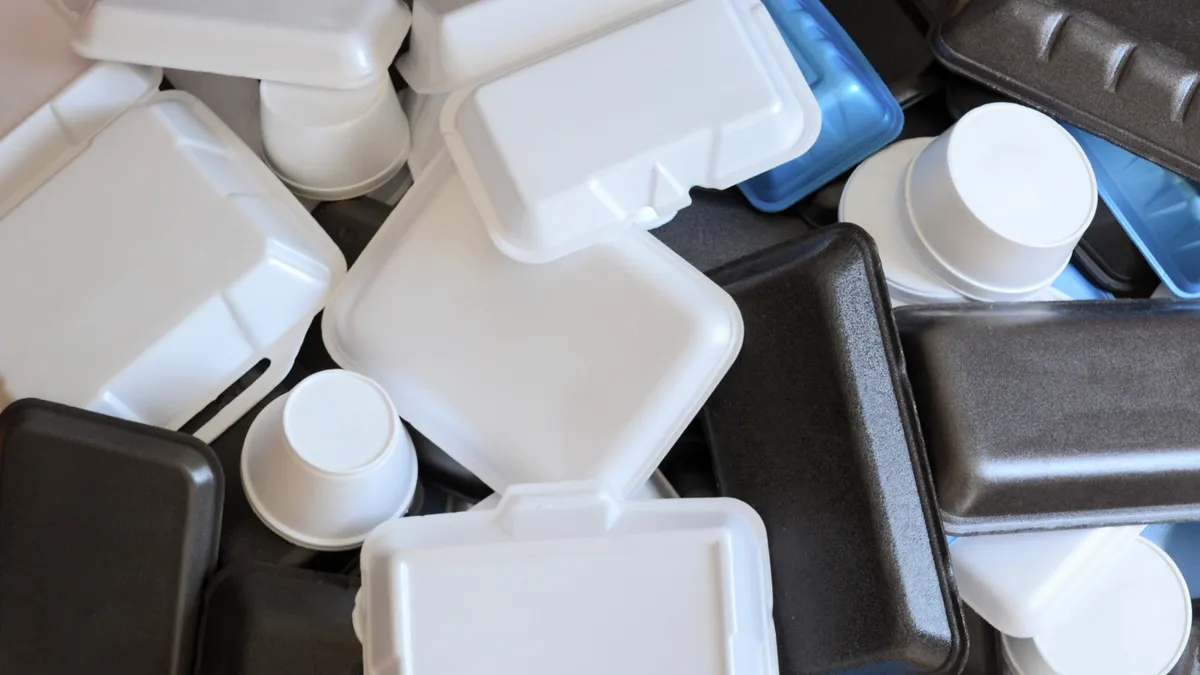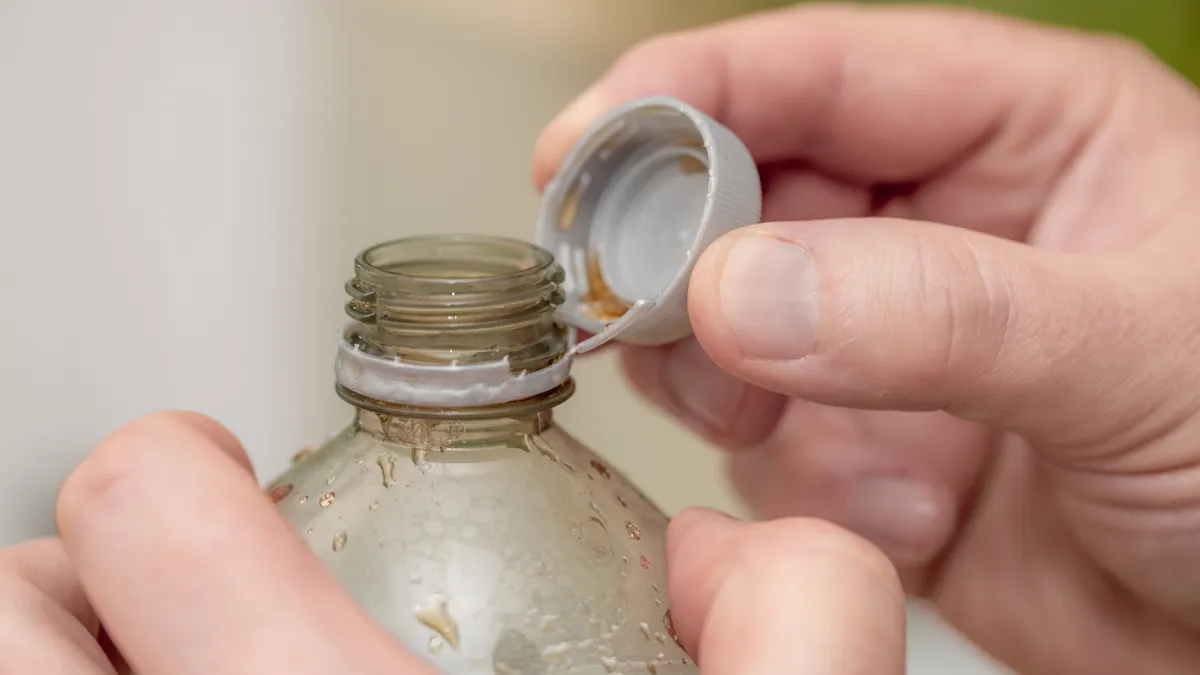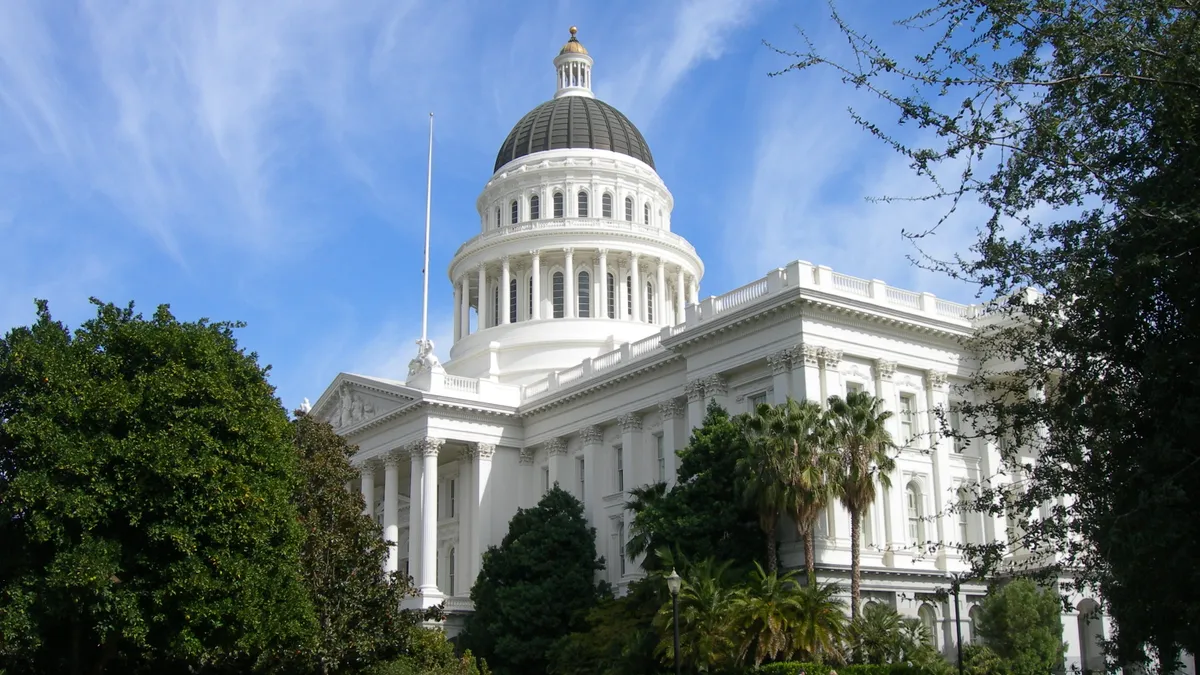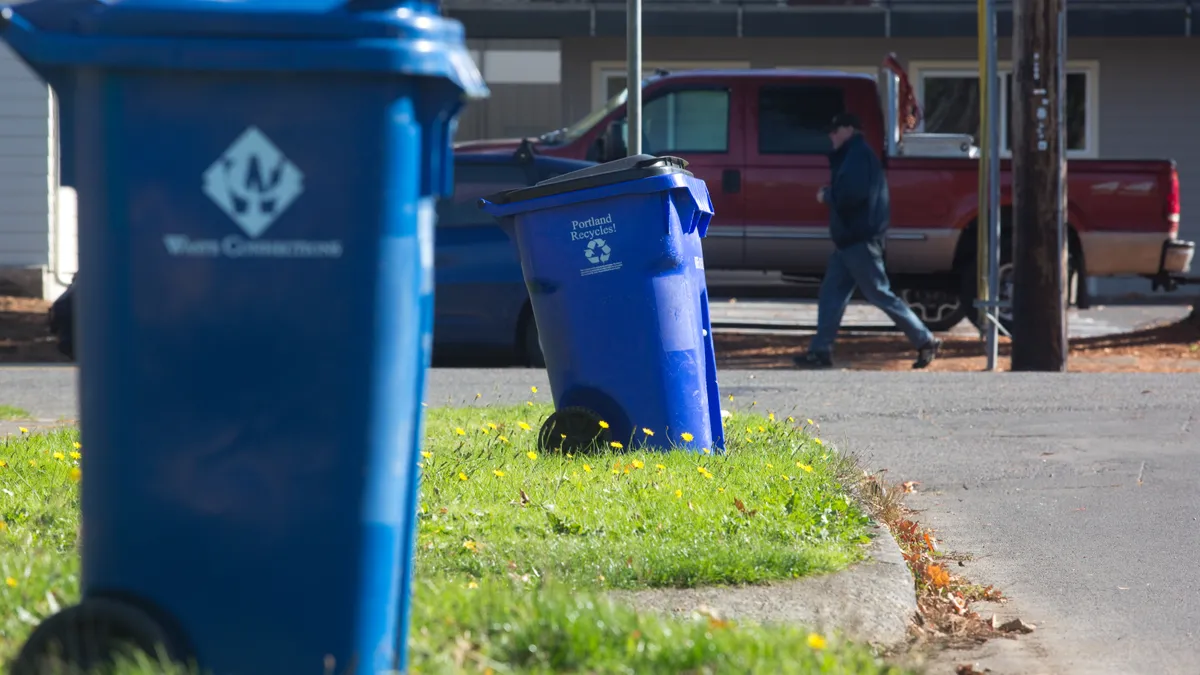California legislators recently narrowed down the list of bills that could pass before their current session ends later this summer. Multiple pieces of legislation relevant to packaging remain in play.
| Bill number | Topic | Bill status |
| SB 1231 | Packaging EPR updates | Passed Senate |
| SB 1053/AB 2236 | Plastic bags | Passed respective chambers |
| AB 2761 | Toxics in packaging | Passed Assembly |
| SB 1147 | Microplastics | Passed Senate |
Updating SB 54 with a new packaging eligibility process
SB 1231 would create a new process for producers to petition CalRecycle to assess whether their packaging meets state recyclability standards. The bill would apply to certain producers covered under SB 54, California’s EPR for packaging law. State Sen. Ben Allen, a primary sponsor of SB 54, also sponsors SB 1231.
If passed, SB 1231 would update the existing process CalRecycle uses to determine whether a product is “recyclable.” That process was established in 2021 with the passage of SB 343, known as the “truth in labeling” bill. That law prohibits the use of the “chasing arrows” symbol or any other recyclability claim on packaging unless it meets state thresholds for collection and processing for recycling.
A product is considered “recyclable” under SB 343 only if at least 60% of jurisdictions can collect, sort and sell a material to a recycler. CalRecycle currently uses data from a material characterization study to help make those determinations and recently released a preliminary findings report.
SB 343 was meant to align with SB 54 by allowing an “on-ramp” for certain material covered under the EPR program to be labeled as recyclable, even if it didn’t initially meet recyclability standards, if producers could demonstrate they have improved the material’s recycling rate.
Bill sponsors say SB 1231 is needed to fix a language issue in SB 54 that “inadvertently precludes CalRecycle from identifying which material could qualify for this on-ramp” until after a key deadline for removing recyclability claims from packaging has passed, according to a Senate floor analysis. SB 1231 aims to fix the time gap by allowing producers to petition CalRecycle for the continued use of recycling claims.
Supporters say the clean-up bill puts the onus on producers to make the case that their materials are “trending towards recyclability” instead of putting the responsibility on CalRecycle to make the decision based on updates to the next material characterization study, which are due in 2027.
The American Chemistry Council, Association of Plastic Recyclers, Consumer Brands Association, Flexible Packaging Association, National Stewardship Action Council and The Recycling Partnership all support the legislation. Supporters also include major brands such as Danone, Keurig Dr Pepper, Kraft Heinz, Nestle and Unilever.
The bill has faced opposition from groups such as Beyond Plastics, the Last Beach Cleanup and the Plastic Pollution Coalition. The groups say SB 1231 would create “a huge new loophole” for the plastics industry to petition CalRecycle for an exception. The groups also oppose the way the bill would further delay implementation of SB 343 for six more months.
Toxics in packaging
AB 2761 would prohibit the manufacturing, sale or distribution of any plastic packaging that includes “regulated perfluoroalkyl and polyfluoroalkyl substances” (PFAS) or polyvinyl chloride, including polyvinylidene chloride. The proposed policy could take effect Jan. 1, 2026.
A recent bill analysis noted that the legislation “exempts certain packaging products that could be in direct conflict with a federal law or regulation for child-resistant packaging, tamper evident packaging, or packaging of agricultural commodities.”
As of mid-April, opponents included the American Chemistry Council, American Forest & Paper Association, Consumer Brands Association, Flexible Packaging Association, Foodservice Packaging Institute, Plastics Industry Association and the Vinyl Institute. Supporters included a large number of environmental groups such as the Natural Resources Defense Council, Clean Water Action and Californians Against Waste.
In a summary of their arguments, supporters cited concerns about health effects and pollution. Opponents said the implementation of SB 54 and SB 343 will already lead to the phasing out of certain types of packaging covered by the bill.
Scrutinizing bottled water
SB 1147 sets its sights on mitigating potential health and pollution concerns from bottled water, citing recent studies finding microplastic levels in containers from multiple popular brands.
The bill would require CalEPA to “prioritize studying the health impacts of microplastics in drinking water, including bottled water.” It also would require the State Water Resources Control Board to develop health standards and goals for less harmful microplastic levels, along with annual testing plans for those levels in bottled water sold within the state. It would also require bottlers to submit annual information about these levels. These requirements would be phased in over a period of multiple years.
Supporters include groups such as California Environmental Voters and Californians Against Waste. No opposition had been recorded as of May 16.
Re-banning bags
California voters approved a statewide referendum in 2016 that upheld a ban on the sale of certain single-use plastic carryout bags. However, this resulted in the proliferation of bags made from thicker plastic film that, while technically reusable, led to higher levels of plastic usage and were considered a loophole by some groups. A pair of bills, SB 1053 and AB 2236, seeks to update the state’s approach.
The proposed bill, which could take effect in January 2026, repeals certain portions of the existing law (SB 270) to further exclude the use of plastic bags and set tighter standards for the definition of reusable bags. It would require that paper bags have a minimum of 50% postconsumer recycled content by January 2028, along with multiple other regulatory updates.
According to the latest bill analysis, opponents include the American Recyclable Plastic Bag Alliance, American Forest & Paper Association, Association of Plastic Recyclers, Durabag, Prezero and The Recycling Partnership. Supporters include a long list of environmental advocacy groups, as well as Kroger, Republic Services, the city and county of San Francisco, Lt. Gov. Eleni Kounalakis and others.
Correction: A prior version of this story misstated the status of the SB 343 preliminary findings comment period. The comment period is now closed.




